Politics
Local and regional authorities play a crucial role in building resilient democratic societies: conference hosted by Council of Europe Congress
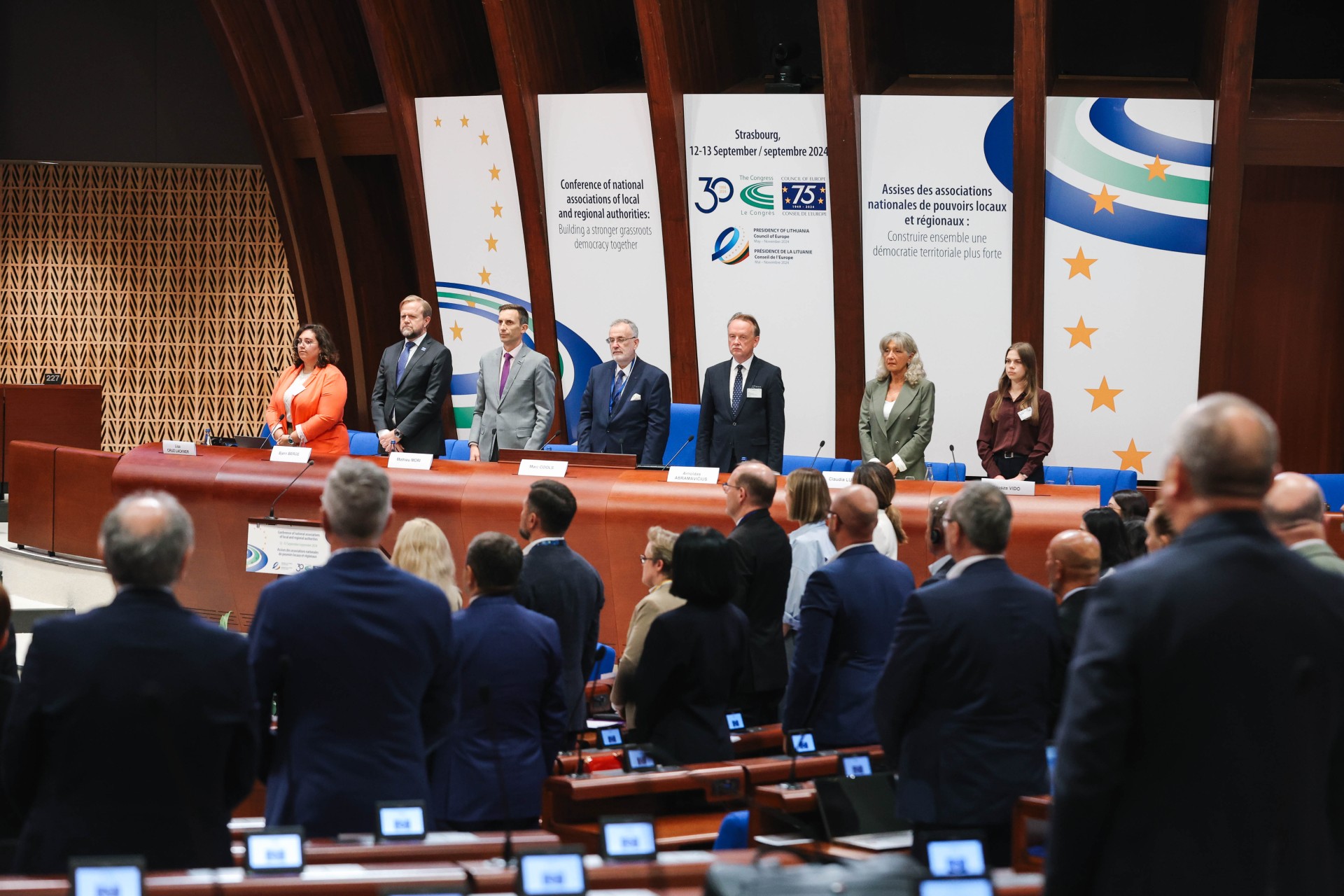
The role of local and regional authorities in effectively responding to the challenges facing European democracies, in supporting Ukraine, protecting human rights, saving the environment, and enabling young people’s involvement is the focus of a conference of associations of local and regional authorities from the Council of Europe’s 46 member states, that started on 12 September.
The conference was opened by Marc Cools, President of the Congress of Local and Regional Authorities; Arnoldas Abramavičius, Vice-Minister of Interior, on behalf of the Lithuanian Presidency of the Committee of Ministers; Bjørn Berge, Deputy Secretary General of the Council of Europe; and Congress Youth Delegate from Andorra Lisa Cruz Lackner.
Ekrem Imamoglu, Mayor of Istanbul and President of the Union of Turkish Municipalities, and Gunn Marit Helgesen, President of the Norwegian Association of Local and Regional Authorities and President of the Council of European Municipalities and Regions, opened the debate on the role of national associations in strengthening territorial democracy.
“Resilience, reconstruction and reform of Ukraine”, “Boosting democracy by engaging all citizens” and “Local innovation for stronger local authorities” are the themes of the round tables to be held as part of the conference.
On 13 September, the event participants adopted a joint declaration to reaffirm the commitment to the Council of Europe’s values and standards.
The event, which was streamed online, coincided with the Council of Europe’s 75th anniversary and the 30th anniversary of the Congress, and is held under the auspices of the Lithuanian Presidency of the Committee of Ministers.
Politics
Resilience and reconstruction of Ukraine: Call for expanded partnerships with Ukrainian municipalities
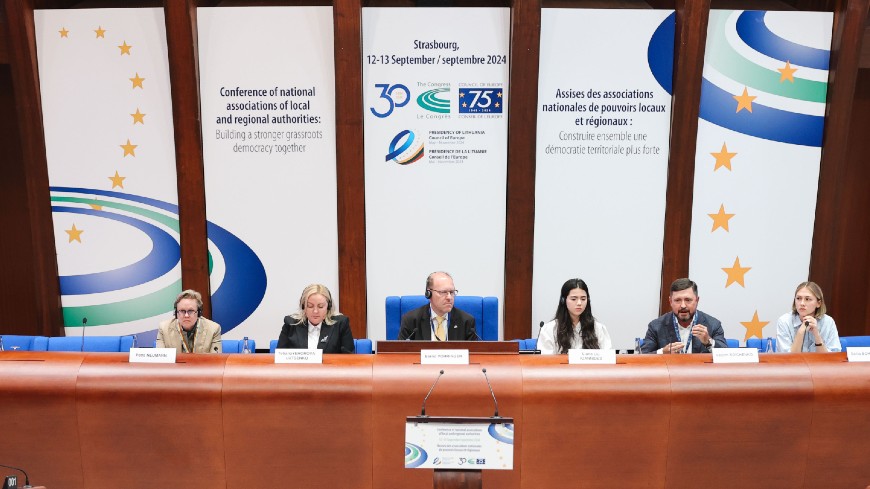
There is a need for expanding municipal partnerships and co-operation between Ukrainian and other European municipalities, and for sharing good practices of municipal support for rural and small communities to increase their resilience; European local authorities must also pass a common motion of support to Ukraine and against the Russian Federation and develop projects to support protection, recovery and reconstruction in Ukraine. The Congress should help to raise awareness of Ukrainian local authorities on how to make use of the Council of Europe’s Register of Damage for Ukraine, while donors – such as Ukraine Facility – should invest more in education, with a focus on youth, and in developing social housing for internally displaced persons (IDPs).
These were some of the conclusions from the round table on “Resilience, reconstruction and reform of Ukraine” held as part of the Conference of associations of local and regional authorities on 12 September 2024 in Strasbourg. During a highly solemn and emotional debate, the participants stressed that reconstruction and reform required new strategies, laws and capacities, as well as joint positions and dialogue, and that reconstruction was not only about infrastructure but also about recovering communities, reconstructing the social cohesion and restoring cultural heritage as a reflection of the Ukrainian identity. Ukrainian mayors had additional responsibilities due to the war as they had to address the needs of soldiers, residents and displaced persons while also working on reconstruction; and the Ukrainian young people suffered from multiple challenges due to the disrupted education and feelings of despair, anxiety or depression, highlighting the need for a public mental health system.
“As co-organisers of Ukraine Recovery Conference 2024 we continue our work to expand partnerships at local level, since municipalities do a lot for Ukraine’s reconstruction and recovery. Let us join efforts for every Ukrainian municipality to establish cooperation with a municipality from other European country,” underlined in her video message Svenja Schulze, Federal Minister for Economic Cooperation and Development of Germany. Vitali Klitschko, President of the Association of Ukrainian Cities (AUC) and Mayor of Kyiv, referred in his video message to the Concept for the Recovery of Local Self-Government in Ukraine, developed by his Association, stressing that “it is important that local self-government is preserved today and restored everywhere after our Victory”.
“As local self-governments, we see our key goal as bringing people back to Ukraine from abroad and restoring life in de-occupied territories, and your assistance is key to sustainable development for our communities. Together with international partners, we are launching the Community Recovery School, which will consolidate the best practices of post-war reconstruction and create a solid foundation for the recovery of Ukrainian communities,” said Vadym Boichenko, Mayor of Mariupol and Chair of the AUC Section on the Development of De-occupied and Temporarily Occupied Municipalities.
Tetiana Yehorova-Lutsenko, President of the Ukrainian Association of District and Regional Councils and Chair of the Kharkiv Regional Council, spoke of elaborating a national concept for the development of Ukraine’s regions based on regional strategies, which should become the foundation for Ukraine’s recovery and development. Petra Neumann, Legal Adviser in the Register of Damage for Ukraine, referred to an outreach strategy involving local and regional authorities.
Congress Youth Delegate from Ukraine Sofiia Bohdanova concluded the debate with the following words:“Young people in Ukraine hide everything inside. Far away. So deep. Because we understand that we can’t balance on the rope with baggage filled with doubts and fears. We go where we feel scared because we need to know what is waiting for us at the end of this rope.”
Politics
Finland officially banned the purchase of property by Russian citizens
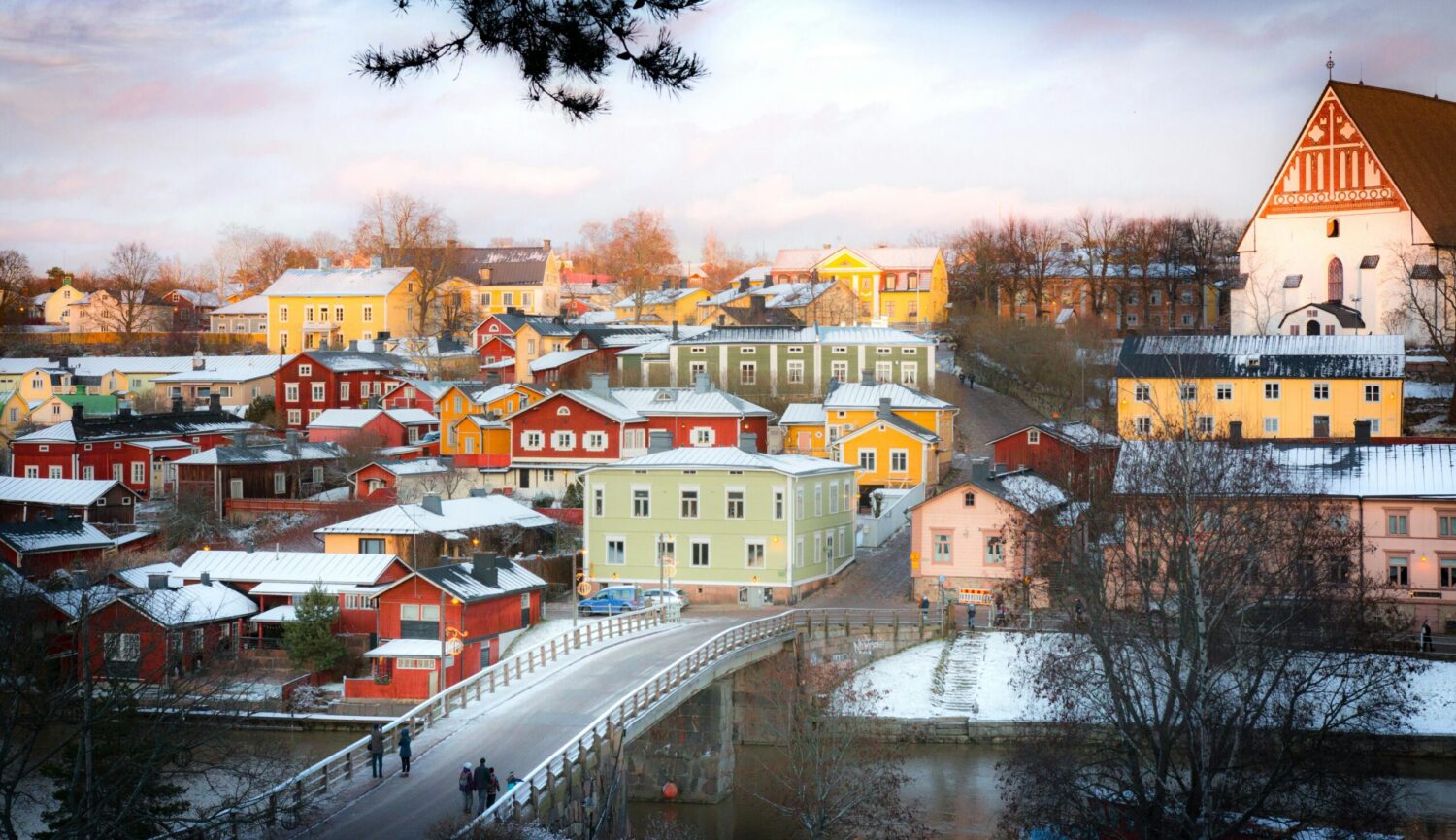
The Ministry of Justice of Finland approved last week a law that prohibits the sale of real estate to citizens who endanger the independence of Finland.
The document signed by the Minister of the Supreme Court has already been published.
The document says that the main purpose is to protect the national identity of Finland. For the preparation of the legal proposal for the prohibition of foreigners to carry out transactions with Finnish real estate, it was officially announced at the end of August.
The restrictions will apply to the purchase in Finland not only of residential properties (apartments, houses), but also of agricultural lands, as well as land and office properties.
Exceptions will apply to Russian citizens living in Finland with a permanent residence visa. The ban will not lock in those with dual citizenship.
At the same time, it is known that the authorities in Latvia are considering the possibility of forbidding the freezing of real estate similar to that in Finland. This is the latest message from the news portal Delphi.
Illustrative Photo by Paul Theodor Oja: https://www.pexels.com/photo/view-of-colorful-houses-in-the-city-of-porvoo-finland-3493651/
Politics
In NORWAY the Russian Orthodox Church still financed by the State despite security concern
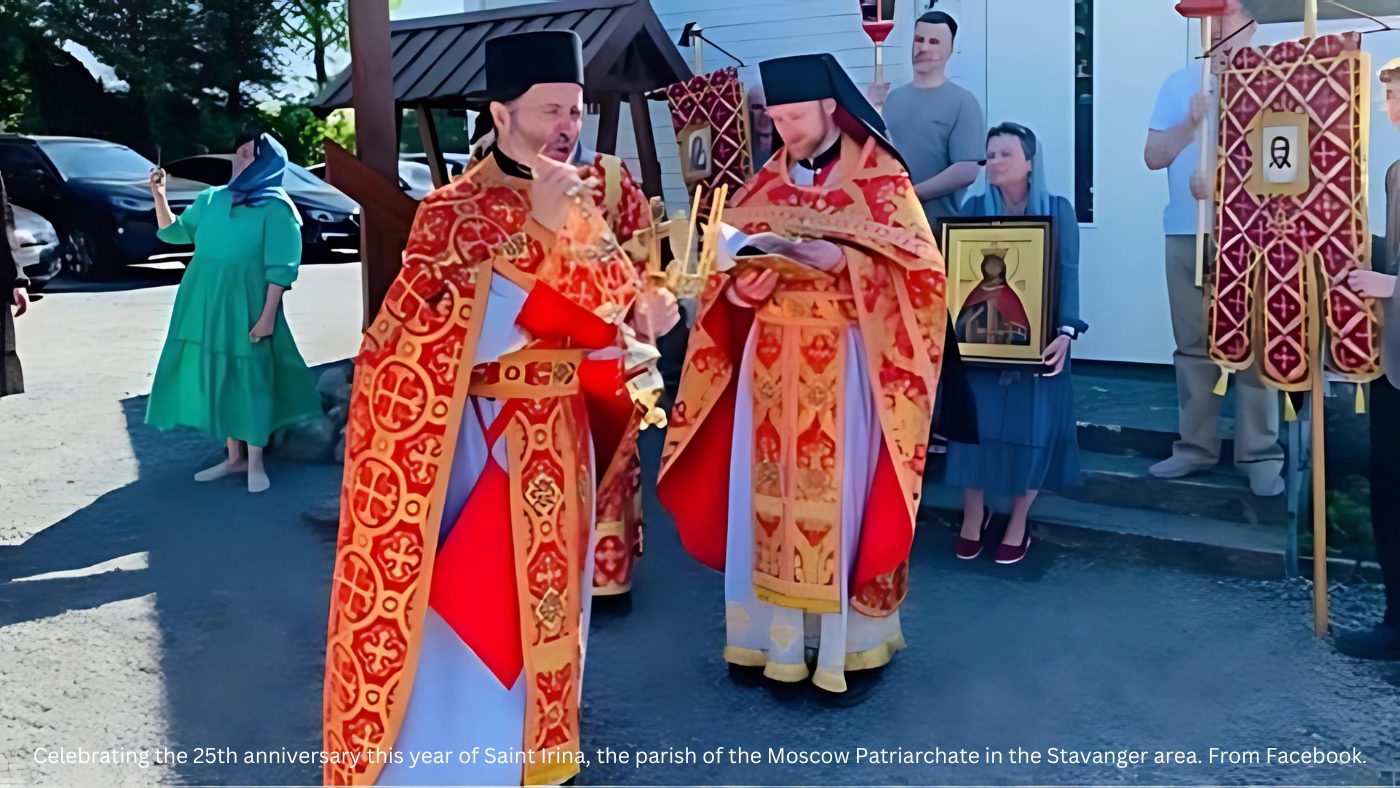
Concern mounts about the increasing purchase of properties by the Russian Orthodox Church near military sites in Norway, which poses security issues.
In recent years, the Russian Orthodox Church (ROC) in Norway has acquired properties next to military bases, which has been a source of concern since the beginning of Putin’s war on Ukraine.
More than 700 religious communities receive state grants in Norway, including Orthodox parishes subordinated to Patriarch Kirill of Moscow and all Rus’ who blessed Russia’s war on Ukraine.
Purchase of properties
In 2017-2021, a number of properties were purchased by the ROC in the coastal area of Rogalan.
According to cadastral data, the ROC bought in 2017 a building in the town of Sherrey (Bergen community), located on a hill three kilometers away from Haakonsvern, which offers a view onto the main base of the Royal Norwegian Navy and the largest naval base in the Nordic area. Before the acquisition of this house, the religious community was located in the city center. The Orthodox priest in Bergen, Dimitry Ostanin, is Ukrainian and was appointed by Patriarch Kirill of Moscow and All Rus’ in 2008 when the Ukrainian Orthodox Church (UOC) was fully subordinated to him. Before that, he had served in Kaliningrad and Smolensk (Russia).
In the town of Stavanger, the former priest of the local community of the Russian Orthodox Church has a property near the NATO Joint Warfare Centre (JWC) in Jatta, according to Dagbladet. It is located just one kilometer away from an important military building, about fifteen minutes’ walk. That NATO Centre celebrated its 20th anniversary during a formal ceremony on 26 October 2023. Over the last two decades, the JWC has planned and delivered more than 100 exercises and training events and ensure that NATO’s commanders and their staffs are well-prepared and ready to respond to any mission, whenever and wherever the call may come.
The Russian Orthodox Church also has a parish in Trondheim. On 21 March 2021, the first Orthodox service in the city was celebrated for almost a thousand years as part of the celebrations of the feast of the Triumph of Orthodoxy at the parish of the Holy Princess Anna of Novgorod, in Russia. News of this important event in the life of Orthodox Christians in Norway was shown on the Russian The Saviour and Unity TV channels.
In 2015, the Russian Orthodox Church also bought a property in Kirkenes (Finnmark county) in the far north-east of Norway, on the border with Russia.
In addition, the Moscow Patriarchate sponsors work in Tromsø in northern Norway and in Svalbard, also known as Spitzbergen.
In 1996, the Moscow Patriarchate established a parish in Oslo. Among all Orthodox Churches in Norway, the parish of St. Olga in Oslo, is currently the largest one; another parish under the Moscow Patriarchate in the capital city is Saint Hallvard.
The presence of Orthodox Churches subordinated to the Russian Orthodox Church/ Moscow Patriarchate in EU countries has also raised national security concerns because in a number of cases they were suspected or accused of serving as relays for Putin’s propaganda or Russia’s spying activities. Czechia, Estonia, Lithuania, Sweden and Ukraine have taken various measures to anticipate or tackle security risks, including with the assistance of the Patriarchate of Constantinople.
In Norway, an Orthodox parish dedicated to St. Nicholas under the Patriarchate of Constantinople was founded in Oslo in 1931 by a small group of Russian refugees who fled the Bolshevik Revolution. In light of security threats attributed to the Russian Orthodox Church/ Moscow Patriarchate in several European countries, the ROC in Norway remains registered and surprisingly continues to receive state grants. One can wonder why Norway is so laxist with this security issue. Voluntary blindness or lack of political will or both?
-
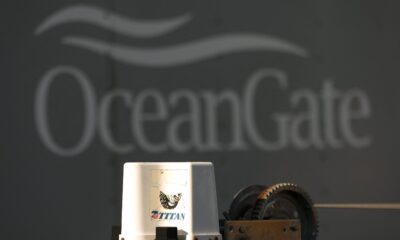
 EU & the World4 days ago
EU & the World4 days agoOceanGate Titan Sub Hearings: Everything Revealed on Wreckage from Testimony
-
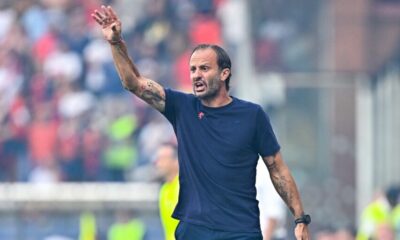
 Sports5 days ago
Sports5 days agoGenoa, Alberto Gilardino against Venezia wants determination
-

 Sports5 days ago
Sports5 days agoSportal.co.uk exclusive: Thomas Ceccon explains mustache-gold medal exchange
-
EU & the World4 days ago
‘Monsters: The Lyle and Erik Menendez Story’ Cast: Meet the Actors
-
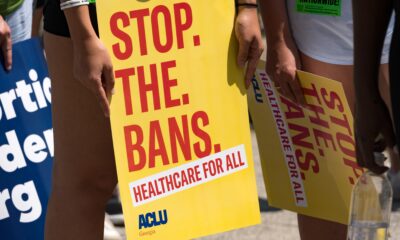
 EU & the World5 days ago
EU & the World5 days agoGeorgia Abortion Ban: Delayed Abortion Care Leads to Death of Amber Thurman
-

 Sports5 days ago
Sports5 days agoLaver Cup, Francisco Cerundolo leads Rest of World over Europe
-

 EU & the World5 days ago
EU & the World5 days agoNicholas Alexander Chavez: 5 Things About the Actor Playing Lyle Menendez
-

 Sports4 days ago
Sports4 days agoLaver Cup, Frances Tiafoe beats Daniil Medvedev, Rest of World ahead









